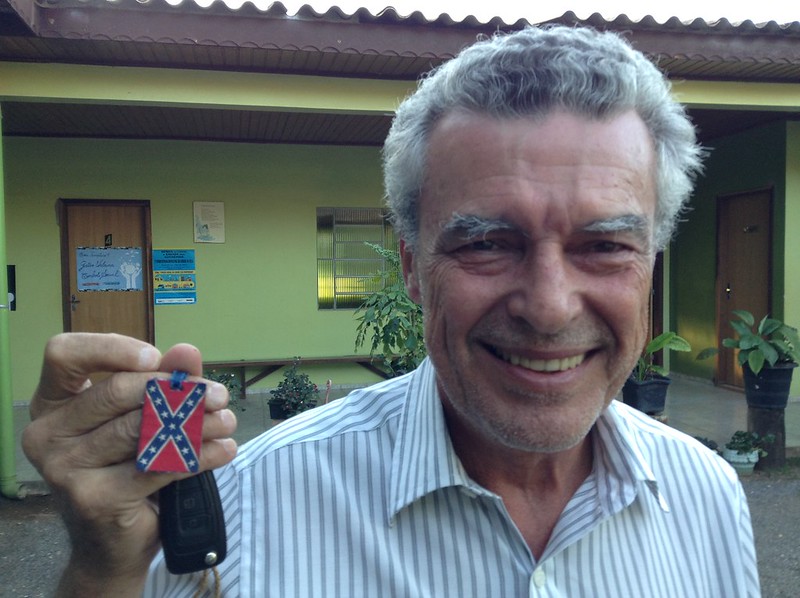Movie posters for the film sequel of “Independence Day” are all around Rio de Janeiro, and it’s an easy reminder of the pervasiveness of American culture. The film title is in English, and it’s being released July 4. This would be like Brazil creating a film called “Dia da Independência,” to be released worldwide September 7, with that Portuguese name never being translated into other languages, and declaring that this will be the day for the world to globally declare its independence from an alien empire that has a penchant for only attacking on Brazil’s official day of independence from Portugal. Sounds a little Brazil-centric, no?
America’s new “Independence Day” film also resonates in Brazil because of these two countries’ historical ties. Every year, the Brazilian descendants of American immigrants mark the 4th of July, as recently described in The New York Times:
The Fourth of July celebration has all the hallmarks of a scene from “Gone with the Wind,” or a county fair in the most unreconstructed corners of Mississippi or Alabama. The men, dressed in Confederate gray shell jackets, yellow-trimmed frock coats, kepis and plumed black slouch hats, cross the dance floor to select their partners, elegant young women in colorful hoop-skirted ball gowns. Arm in arm, they step to the rhythms of ancient dances, as the fiddle and banjo strike up the old-time strains of “Dixie’s Land,” “The Yellow Rose of Texas,” “The Virginia Reel” and “Cumberland Gap.” …The setting is, in fact, in the South – very far south, in Brazil.
I met one of those Confederate descendants this past week in the interior state of Mato Grosso. I was waiting to meet the mayor of a small town called Vera, when I spotted a man by the water cooler with a Confederate flag keychain. I walked up and introduced myself in Portuguese, and he immediately responded in English that his name was James King.
Turned out that King’s grandparents immigrated to Brazil from Alabama following the American Civil War, and his family still gathers every year for a Confederate Festival. King said he wants to be buried about 1,000 miles south of Mato Grosso in the family cemetery of Parana state, which was created because officials refused to allow protestants to be buried in the Catholic cemetery.
For all my cringing over America’s heavy-handed cultural influence, there is a real interchange of people and ideas and culture between the U.S. and Brazil. The hateful anti-immigrant tirades of Donald Trump, or the isolationism of Britain’s exit from the European Union, won’t undue it. So, Happy Interdependence Day from James King in Mato Grosso, Brazil!

